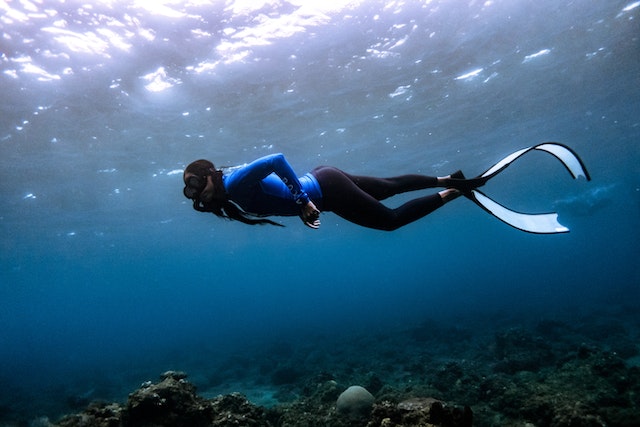These relevant tips for snorkeling on Big Island will make every second you spent at the sea count. Read on to find out. Should you go in the morning or afternoon to snorkel in Hawaii? Find out.
Tips for snorkeling on Big Island
The following are important tips for snorkeling on the Big Island:
Choose the right snorkeling spot
When choosing a site, several variables are crucial. Before committing, pick one that corresponds to your level of experience and find out whether the location frequently sees sightings of marine species. Recognize that the day you select might not be ideal for sightings. However, you’re sure to see something interesting!
Use biodegradable sunscreen
Biodegradable sunscreens are the safest for the environment. Using them is also safe for reefs and marine animals. Two components that are frequently found in sunscreen, oxybenzone and octinoxate, have been identified by the National Centers for Coastal Ocean Science as being bad for coral reefs. These and other compounds found in sunscreens can cause coral bleaching.

Get the right mask
Fit the mask over your eyes and fasten the elastic around your head before anything else. Verify that the straps are flat above your ears and without twists. Don’t wear your mask strap near the base of your head as the mask can fall out of place and cause water to seep in. Should you go on snorkeling on the Big Island?
Avoid feeding the fish
You can upset the natural order of things by feeding the fish. Sharing is showing caring, but intervening might have negative effects in the long run. Practice reef etiquette. Take in the sights and sounds; snorkeling is a fantastic way to learn about marine life. Make mental notes for later.
Avoid touching the coral
Coral is a living organism, so avoid standing on it and try to keep an eye on the ground as you move around to stay afloat to make sure you aren’t kicking anything you shouldn’t be. As much as possible, avoid standing on any rocks. What appears to be a rock could instead be a weak undersea life.
Avoid interfering with the ecosystem
Avoid interfering with marine life or other sea creatures because doing so could be dangerous. Some species are poisonous, while others may defend themselves by hurting you or themselves. Check out how to enjoy the best of a private boat tour on the Big Island.
Don’t interrupt others
This applies to the ocean. Even though you might be thrilled and want to reach out to the person sitting next to you to make sure they notice the amazing lionfish just sailing by, not everyone finds the intrusion amusing.
Don’t take anything home with you
that holds true for shells, sea urchins, starfish, sand dollars, coral fragments (even if they seem dead), and sand dollars. The acquisition of conch or lobster while scuba diving is prohibited in some locations. Avoid this at all costs because anyone found doing it faces severe penalties.
Use safety equipment
Snorkelers are strongly advised to use flotation devices. For instance, inflatable vests are not just for those who are unable to swim; if you become fatigued, they may be your only chance of survival. For increased buoyancy, certain vests have mechanisms that enable mouth inflation. To have a better look at the fish and other marine life, there is also a release valve that enables snorkelers to descend to the bottom.
Defog your mask
The ability to defog your mask may be the most crucial one for beginners to learn because it may make or ruin your experience. Most experienced snorkelers advise using baby shampoo as a defogging agent.
Practice diving
It’s a great opportunity to practice breathing methods, familiarize yourself with snorkeling equipment, and get at ease in the water.
Get the right gear
When purchasing snorkeling equipment, styles, sizes, and pricing should all be taken into account. Determining whether you want to buy your own equipment or hire some for the day is another crucial decision.



